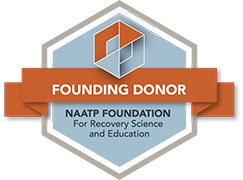Recent Study finds AA Might Be the Most Effective Way to Abstinence
CNN published an article on March 11 about a recent study concluding that those who go through Alcoholics Anonymous may have the best chance at abstaining from alcohol after completion of the program. Over 10,000 participants were evaluated and 145 scientists conducted research in 35 studies to find out how effective AA was on alcohol use disorder. The result was that AA was found to be “more effective than psychotherapies such as cognitive behavioral therapy in achieving abstinence.”
Read the CNN Article at this Link (opens in a new tab)
The CNN article goes on to say that over three million alcohol-related deaths have occurred globally, with alcohol misuse making it the leading risk factor for death and disability among individuals from 15 to 59 years old worldwide. Alcoholics Anonymous offers long-term intervention that allows individuals to continue their progress for many years. For a chronic disease, AA offers better long-term support and help than some of the solutions our health care system provides.

Bill and Lois W., some of the first members of AA at High Watch Farm in 1939
AA was founded in 1935 and in 1939, High Watch Recovery Center was established as the first 12-step treatment center in the world. Many have lovingly referred to High Watch as the “Hill of Hope” because of the hope and support that comes from the serene campus tucked into the hills of Kent, Connecticut. Dana Pollack, who works as a Senior Clinician and Trauma Specialist at High Watch, says “A lot of people have had the feeling when they’re driving up the hill to come into High Watch, that they have a feeling of hope, that they have a feeling that they can rebuild their lives. That things are going to get better. High Watch has become known as the hill of hope.”
Over seventy years after High Watch was founded, it continues to remain a non-profit dedicated to healing those suffering from the chronic illness of drug and alcohol addiction. Each resident receives state-of-the-art, customized medical care while learning the lessons on how to stay sober through the spiritual teachings and practice of the 12 Step principles of Alcoholics Anonymous.








